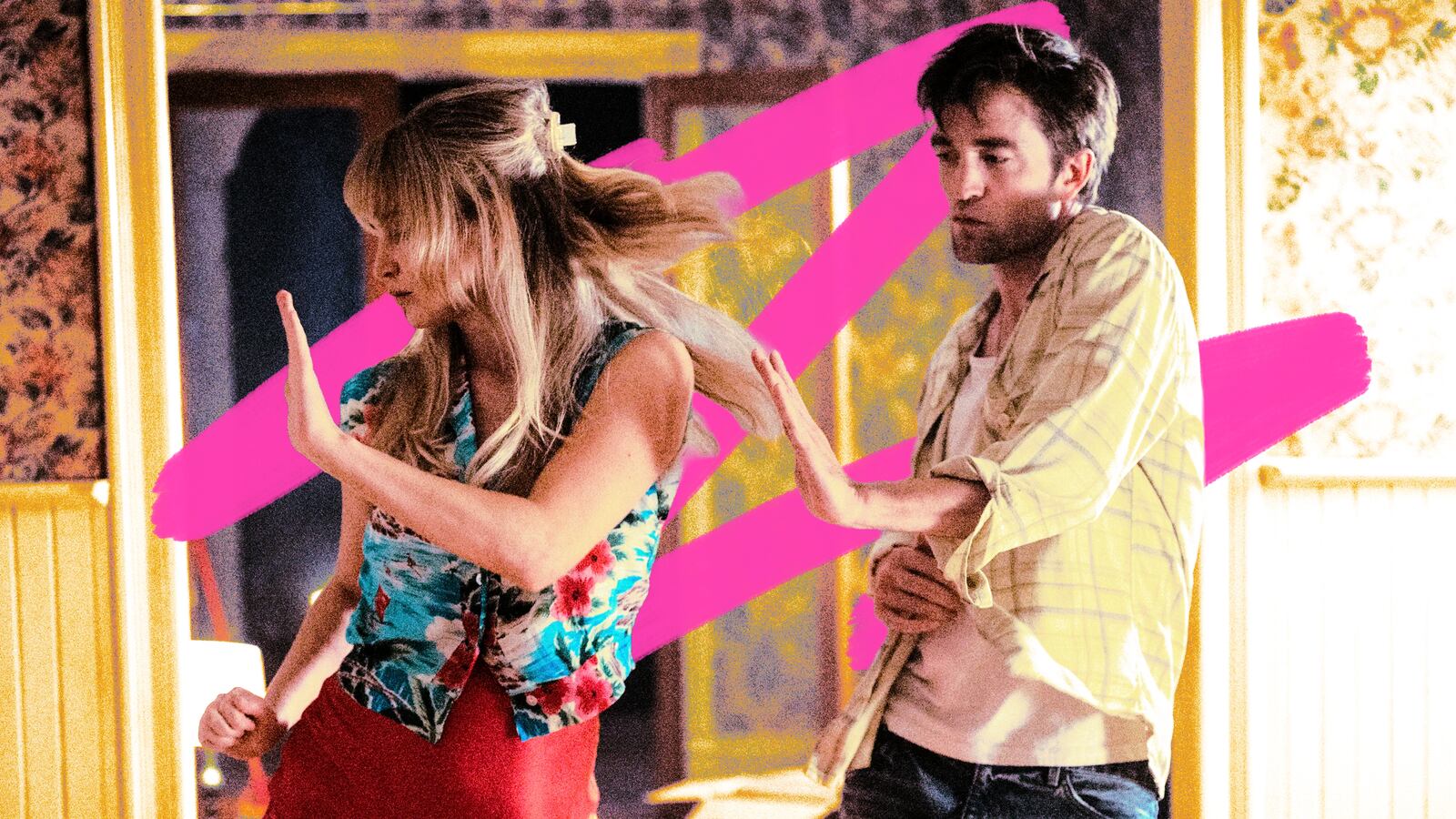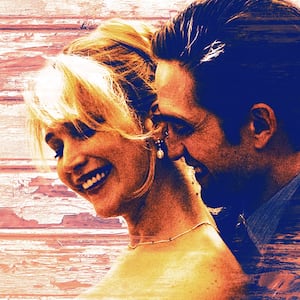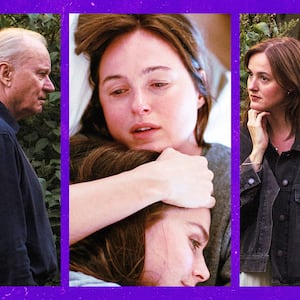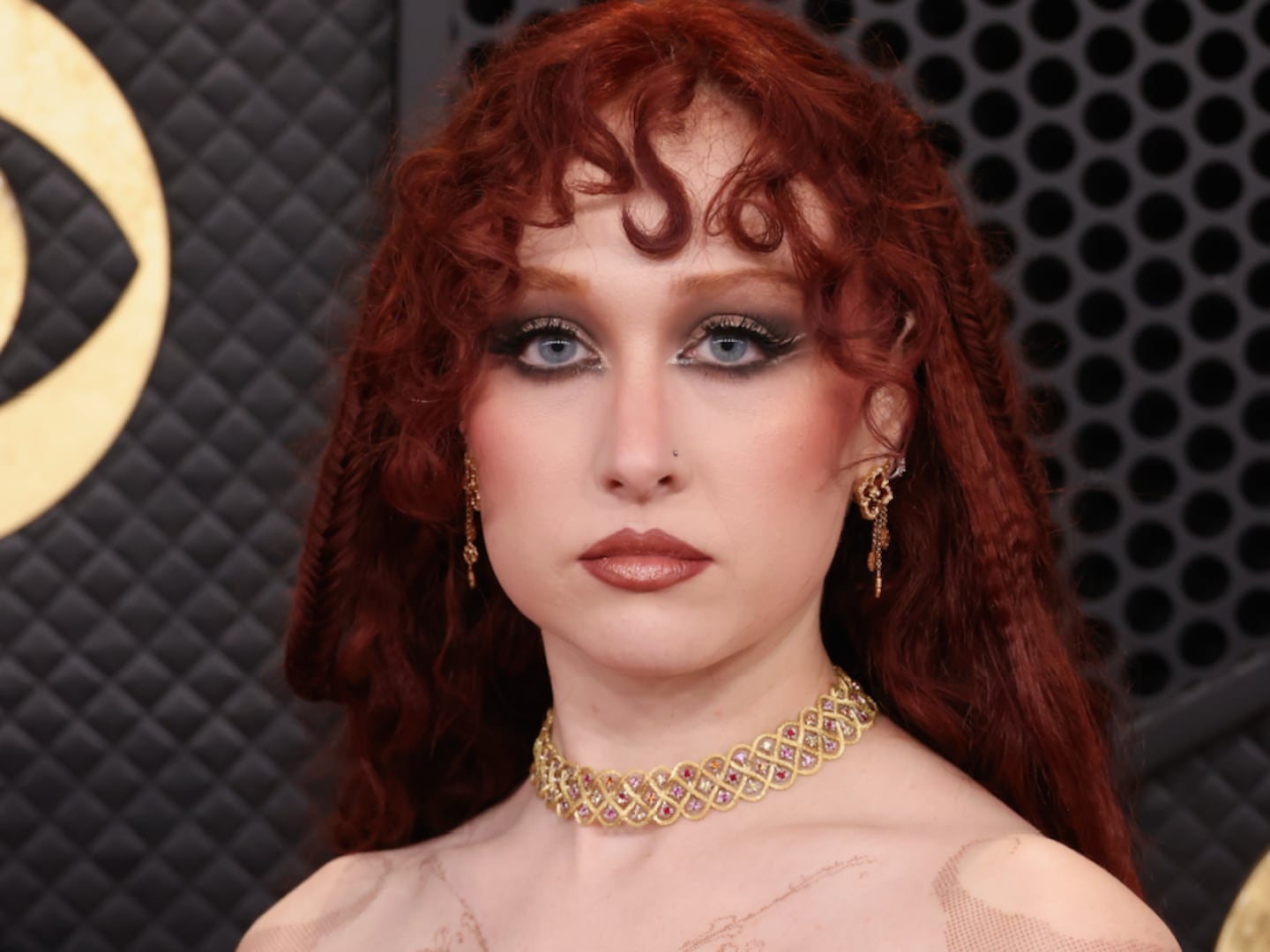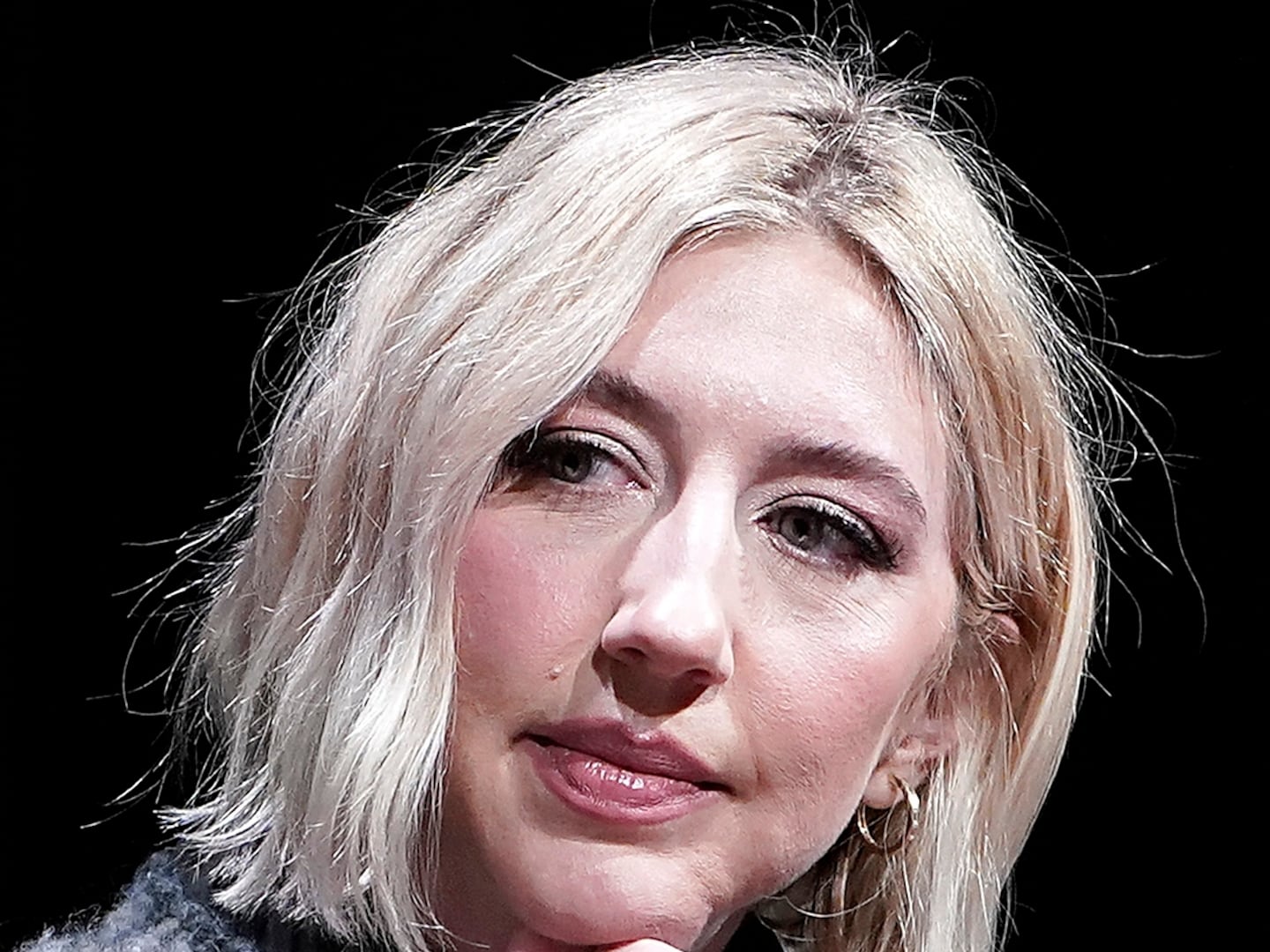Toward the end of Die My Love, the fifth and latest film from the great Scottish filmmaker Lynne Ramsay, we witness a homecoming.
(Warning: Spoilers ahead.)
Grace (Jennifer Lawrence), the one being celebrated, is fresh out of the psychiatric unit where her husband Jackson (Robert Pattinson) admitted her. Jackson and his mother Pam (Sissy Spacek) have summoned their friends and family to the couple’s bucolic roost, where they welcome Grace back. But they’re Jackson’s friends and family, not hers, and in her absence he’s repainted the house. She is a stranger in her community, a visitor in her own abode.
So Grace, quietly at first, then loudly, speaks her mind. She vents frustration at Jackson for having her institutionalized and taking her away from their baby, Harry. She admits to the gathered throng that she personally put down the dog Jackson adopted, ostensibly to keep her company while he works, but which functioned mostly as a scruffy alarm bell that routinely leaked on the carpet. (No need to ring PETA. The dog was in pain; Grace did the humane thing.)

An aghast hush falls over the room. Pam steps forward as if to admonish Grace, but says only one thing with a smile hinting on her lips: “Grace.” Grace responds to Pam in kind: “Pam.” And then she turns and walks out of the house, into the woods.
Popular descriptors deployed in Die My Love’s reviews include “madness,” “nightmare,” and “breakdown.” In a recent conversation with The Daily Beast’s Obsessed, Ramsay embraces far gentler language for confronting the movie’s prickly subject matter; her insights into Grace’s experience is informed by words like “compassion” and “understanding.”
“She’s such a loving character,” Ramsay says of Pam. “We had loads of conversations, Sissy and I, about this. She really added this warmth that was a kind of empathy saying, ‘I see you. I relate to you.’”
Die My Love is a chafing watch, and discomfort is a natural reaction to the exercise. But it isn’t Ramsay’s purpose with the film. Rather, it’s the empathy she cites in Spacek’s performance; if Grace is the protagonist, then Pam should be considered the audience’s moral compass, or perhaps their X-ray specs–the only character in the movie capable of observing Grace’s circumference. Brief as the moment is, and as late as it arrives in Die My Love’s two hour running time, it’s profound, and recalibrates the rest of the story.

“It became a bit more about the two women,” Ramsay explains.
She shot Grace and Pam’s final exchange with one another in singles (i.e., filming actors in individual shots), which helps emphasize that sensation of the pair seeing each other–though it also helps having Spacek play the role.
“That brings in so much more than what’s on the page, you know?” Ramsay says. It’s a sentiment that applies equally to Lawrence, whose experiences with motherhood and movie stardom bind together to give Grace shape, and Pattinson, who has spent his post-Twilight career cashing in his heartthrob bona fides to play the unsavory leads of films like High Life, Good Time, and Damsel.
Homogeneous vocabulary is a common and forgivable quality among Die My Love’s notices. The casual glossing over of the part Pattinson’s character plays in overwhelming Grace’s calm is another, and by far more puzzling.

He is neglectful; he is unfaithful (or maybe not, depending on how one reads a scene where he tips his waitress at a roadside diner way more than 20 percent); he is selfish; he is dismissive. One could easily characterize his behavior as borderline abusive. But neither Ramsay or the movie hand us a gavel for passing judgment on Jackson, in spite of his obvious flaws; in fact, we’re encouraged to see him not as “bad,” and certainly not as “good,” but simply as “human.”
“(Pattinson) has never really played a part like that before,” Ramsay says. “I thought that was bold of him. (Jackson’s) getting it wrong the whole time, you know?”
Jackson tries. Grace requests a cat for a house pet-cum-live-in exterminator for all the rats nesting in their house; Jackson blithely brings her a pooch instead. Grace craves Jackson’s physical desire for her; Jackson doesn’t reciprocate.

“It’s quite a hapless role in some ways,” Ramsay says. “He wants her to be normal, more and more, but maybe what he loved about her in the first place is that she had these aspects to her–she’s feral, animalistic, sexual. It becomes more threatening as she unravels, and he doesn’t know quite how to deal with it.”
Pattinson plays Jackson alternatingly as a man on the bring and as a genial dolt, completely out of his depth as Grace comes undone.
Pattinson makes Jackson just enough of a heel and a useless fool to walk the tightrope between them. “He’s not seeing it clearly,” Ramsay says, referring to Grace’s buckling mental health. “His mother sees more clearly than he does. So that was interesting for Rob as well, to play a character like that. He’s not the big hero. He’s definitely a man with failings, but who does love his wife.”
If there’s precedent for Jackson in Pattinson’s body of work, it’s Damsel, where he plays an inversion of Western protagonists–pathetic and delusion rather than stoic and brave. Die My Love demands more from Pattinson, in terms of unearthing Jackson’s ugliest tendencies, but stops short of making the character into a villain.
“I didn’t see anything sinister behind it,” Ramsay notes. “(Grace and Jackson) are at totally different places, and what I was interested in exploring was a marriage’s well-being at totally different places. Everything’s out of sync.”
Amusingly, that analysis runs counter to the chemistry Lawrence and Pattinson shared together on set.
“It had to be that way,” Ramsay says. “I saw them as the actual couple. I wasn’t thinking about them as Jennifer Lawrence and Robert Pattinson, and that speaks volumes.”
If Jackson’s blindness to, and complicity in, Grace’s slowly eradicated sense of self represents a domestic tragedy, then Pattinson and Lawrence’s work together in Die My Love represents creative kismet–a pairing that was simply meant to be; and if that’s the case, then they had the right director in Ramsay to steer them through some of the choppiest marital and maternal waters charted in the movies this decade.

